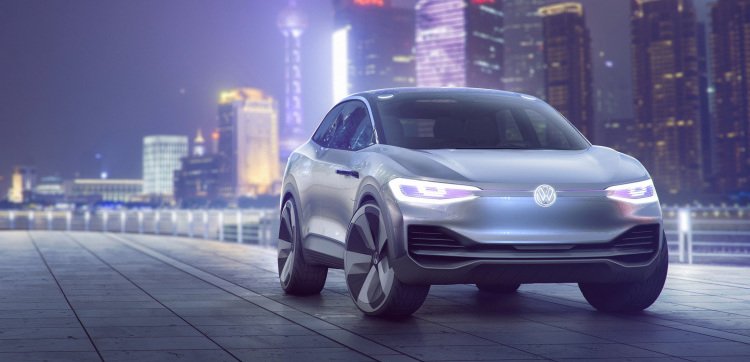Shanghai shows off industry's shift to electrics, crossovers

Not all of the production cars and concepts introduced at this year's Auto Shanghai are relevant to our market, but walking the sprawling show floor lends valuable insight into the trends actively shaping the global auto industry.
Two terms sum up the trends of this year's show: "electrified" and "crossover." With the notable exceptions of the BMW M4 CS and the Mercedes-Benz Concept A Sedan, nearly all of the major debuts slot into at least one of those categories.
Jeep surprised attendees in Shanghai by riding both waves. The company is known for building burly, off-road-focused models and selling them primarily in the United States. That's changing fast; Jeep recently emerged as one of Fiat Chrysler Automobiles' most successful brands and one of the few that's truly global.
While the company's American engineering team was busy stuffing a Hellcat engine between the Grand Cherokee's fenders, its Chinese counterpart was developing what could soon morph into Jeep's answer to the Honda Pilot and the Volkswagen Atlas.
Going after mainstream offerings doesn't mean Jeep has gone soft. The Yuntu concept is infused with the rest of the lineup's DNA, the company assures us. It will most likely spawn a production model, but we won't see it in Los Angeles, Detroit, or New York because it will be built and sold in China, where Jeep has been manufacturing cars for over a quarter of a century.
One of the main reasons why buyers flocked to crossovers is that they wanted to drive something different than a mundane sedan, but the hunter has become the hunted. Crossovers are becoming the norm as they conquer all segments of the market. The industry's response is the crossover-coupe, which BMW pioneered when it launched the original X6. Volkswagen, Audi, Skoda, and Chevrolet all took a stab at the body style in Shanghai with concepts that preview production models.
Mercedes-Benz showed sedans remain attractive if they're done right. The Concept A Sedan looks sharp, contemporary, and athletic, while the updated 2018 S-Class proves there will always be a market for stately luxo-cruisers brimming with tech. This holds true even in crossover-crazy China, where a full 60-percent of all Maybach-badged S-Classes are sold.
The world's most exclusive car companies were conspicuously quiet this year. Lamborghini, Ferrari, McLaren, and Bentley simply showed the new models they introduced in Geneva last month, while Rolls-Royce sat on the sidelines as it fine-tunes the next-generation Phantom. And yet, even with nothing significant to display, high-end companies would never entertain the thought of skipping one of the main Chinese shows.
The bigger Chinese companies like BYD, Chery, and Geely are reaching maturity. They're beginning to forge a design language that gives their brands identities, and they're developing their own technologies. While they may not be leading the industry, at least they're not dramatically trailing behind anymore. They've also got a good vantage point from which to monitor the rapid evolution of the electric car market, so the shift toward electrification could ultimately play out in their favor.
However, there's no shortage of smaller, newer brands that still unabashedly play the knock-off game, sometimes by cribbing styling cues from two or more models. A manufacturer named Leopard sells a crossover named the Q6 that looks like it was built by grafting the front end of a tuned Range Rover onto the body of a mid-1990s Mitsubishi Montero that's the size of a Cherokee. Everything about the model feels cheap; it perfectly illustrates the other, not-so-bright side of the nation's auto industry that's not ready to go global. Land Wind's notorious Evoque clone is still available, much to Land Rover's dismay.
China's shift toward electric crossovers will send a ripple effect across the industry. However, talking with motorists in China reveals they're considerably more excited about the day the car horns fall silent and cars drive themselves. Few companies outside of the usual suspects – namely Volvo, Mercedes, and BMW – talked about self-driving cars during this year's Shanghai show. Automated driving might be the trend at next year's Beijing event.
Nouvelles connexes


